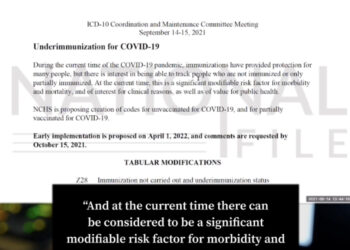Igor Danchenko, the foreign policy analyst who was charged with lying to the FBI about his role in compiling the infamous Steele dossier was on the bureau’s payroll as a confidential informant, according to new court filing revealed last Tuesday.
Special Counsel John Durham revealed the FBI hired Igor Danchenko in March 2017, months after the agency first interviewed him about his role in crafting the dossier. Danchenko was charged by Durham last year with lying to the FBI over his work on the thoroughly discredited document.
Durham alleges that Danchenko “fabricated” allegations that the Trump campaign colluded with the Russian government in order to influence the 2016 election. Danchenko worked for dossier author Christopher Steele at the time, who crafted the document for the Hillary Clinton campaign.
The latest filing raises questions about the bureau’s relationship with the analyst.
I’m 2009, the FBI opened a counterintelligence investigation against Danchenko, who worked as an analyst for the Brookings Institute at the time. One of Danchenko’s colleagues at the institute — a D.C.-based liberal think tank — claimed that Danchenko asked whether he would be willing to sell classified materials.
Igor Danchenko left the U.S. in 2011, which brought an end to the probe. It was not reopened when he later returned to the country, however.
Danchenko began working for Steele’s private intelligence firm, Orbis, after leaving the Brookings Institution, according to a report from the Washington Free Beacon. Steele, a former British intelligence officer, tasked Danchenko with investigating any potential links between Donald Trump and Russia.
Steele would go on to compile 17 memos based on Danchenko’s claims into what would become known as the infamous document. Steele dossier information was then provided to the FBI, the Clinton campaign, the State Department, and numerous media outlets.
It is unclear whether the FBI used Danchenko to provide information on the dossier, or as an asset for investigations targeting Trump. The bureau first interviewed the Russia analyst in January 2017, shortly after Buzzfeed published the dossier.
Danchenko attempted to downplay elements in the document, saying that Steele embellished numerous supposed links between Trump and the Russian government.
Though Danchenko undermined aspects of the dossier in those interviews, the FBI failed to disclose the information to the federal court that granted surveillance warrants against the Trump campaign, the Washington Free Beacon reported.





















